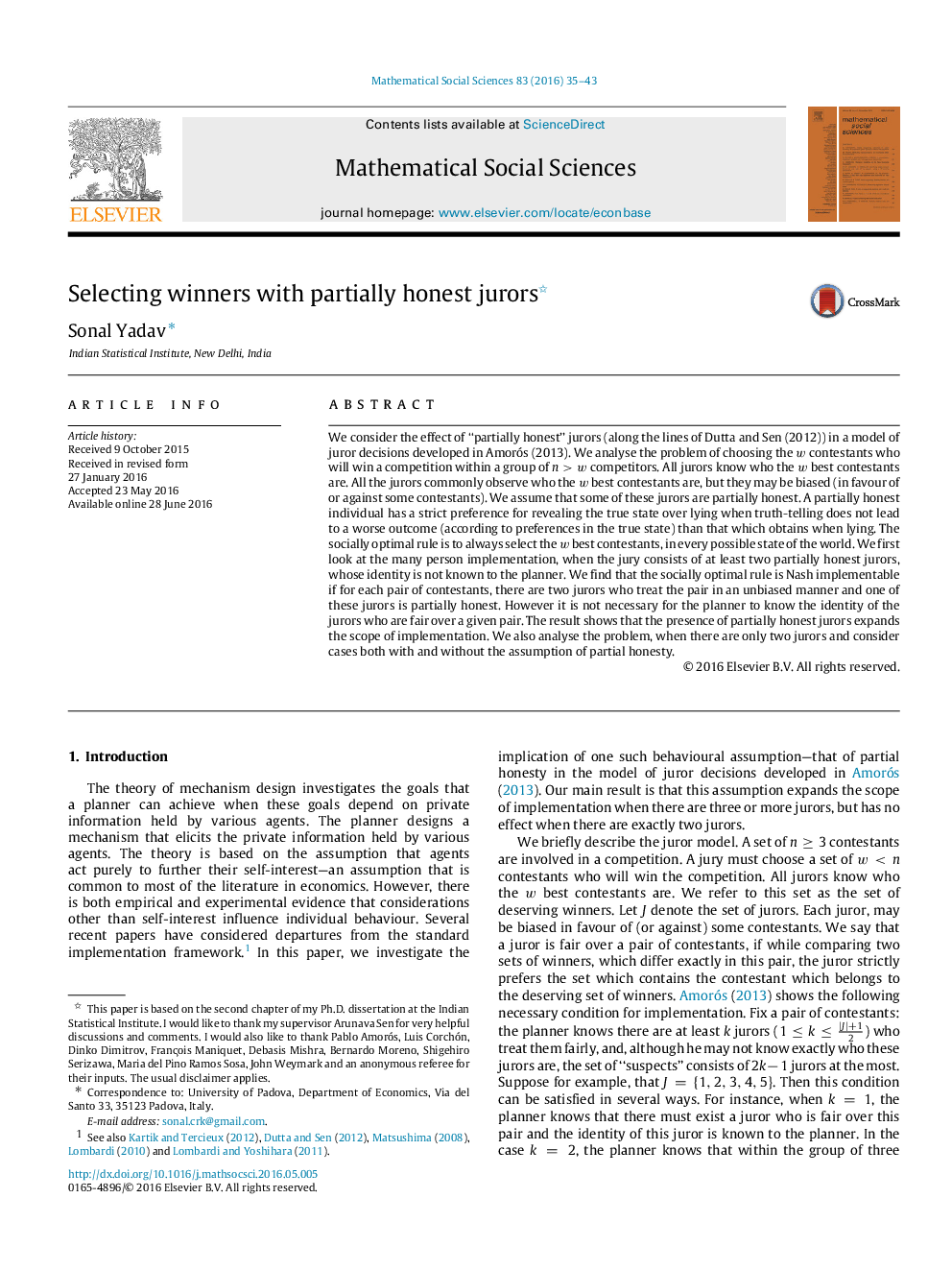| کد مقاله | کد نشریه | سال انتشار | مقاله انگلیسی | نسخه تمام متن |
|---|---|---|---|---|
| 7373293 | 1479735 | 2016 | 9 صفحه PDF | دانلود رایگان |
عنوان انگلیسی مقاله ISI
Selecting winners with partially honest jurors
ترجمه فارسی عنوان
انتخاب برندگان با اعضای هیأت علمی صادقانه
دانلود مقاله + سفارش ترجمه
دانلود مقاله ISI انگلیسی
رایگان برای ایرانیان
موضوعات مرتبط
مهندسی و علوم پایه
ریاضیات
ریاضیات کاربردی
چکیده انگلیسی
We consider the effect of “partially honest” jurors (along the lines of Dutta and Sen (2012)) in a model of juror decisions developed in Amorós (2013). We analyse the problem of choosing the w contestants who will win a competition within a group of n>w competitors. All jurors know who the w best contestants are. All the jurors commonly observe who the w best contestants are, but they may be biased (in favour of or against some contestants). We assume that some of these jurors are partially honest. A partially honest individual has a strict preference for revealing the true state over lying when truth-telling does not lead to a worse outcome (according to preferences in the true state) than that which obtains when lying. The socially optimal rule is to always select the w best contestants, in every possible state of the world. We first look at the many person implementation, when the jury consists of at least two partially honest jurors, whose identity is not known to the planner. We find that the socially optimal rule is Nash implementable if for each pair of contestants, there are two jurors who treat the pair in an unbiased manner and one of these jurors is partially honest. However it is not necessary for the planner to know the identity of the jurors who are fair over a given pair. The result shows that the presence of partially honest jurors expands the scope of implementation. We also analyse the problem, when there are only two jurors and consider cases both with and without the assumption of partial honesty.
ناشر
Database: Elsevier - ScienceDirect (ساینس دایرکت)
Journal: Mathematical Social Sciences - Volume 83, September 2016, Pages 35-43
Journal: Mathematical Social Sciences - Volume 83, September 2016, Pages 35-43
نویسندگان
Sonal Yadav,
